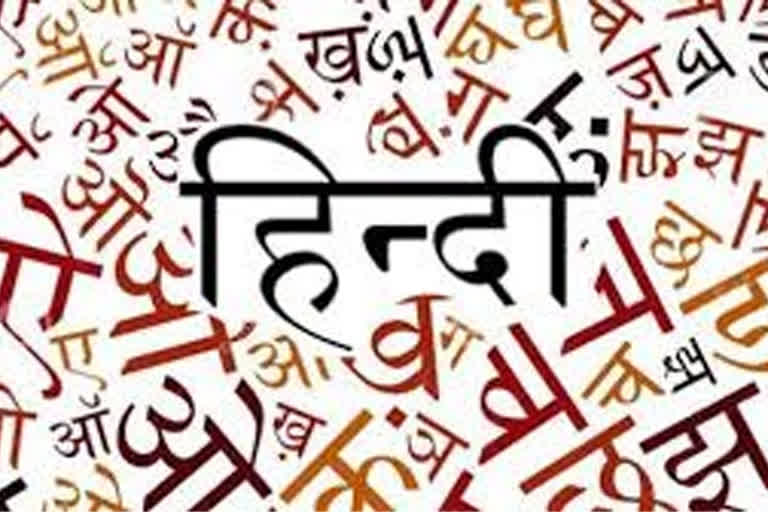New Delhi: The Father of the Nation, Mahatma Gandhi, in his address to the Gujarat Education Conference at Bharuch in 1917, stressed the need of a national language and firmly expressed that Hindi is the only language, which could be adopted as an 'Official as well as National Language of India' because it is the language spoken by a majority of the Indians. Hindi has the potential of being used as a social, economic, religious and political communication link.
The Constitution makers had deliberated the issue of Official Language in detail at the time of framing the Constitution and it was decided that Hindi in Devanagari script shall be adopted as the official language of the Union. This is the basis of declaring Hindi as the official language of the Union under Article 343(1). Moreover, Article 351 directs the Centre to take appropriate steps to promote and propagate the Hindi language so that it may serve as a medium of expression and connecting language for all the elements of composite culture.
A harmonious reading of language provisions, particularly Article 343, 344, 348 and Article 351 would show that the ultimate goal is the spread and development of Hindi and the gradual switchover to its use for official and legal purposes as a common language. The last part of Article 351 says that in developing Hindi, the vocabulary shall be drawn, wherever necessary, primarily from Sanskrit and secondarily from other languages. Primacy has been given to Sanskrit because it is the oldest language in the world and other languages have sprung from Sanskrit.
It is also the fountain source of Indian culture and the world's oldest scripture 'Vedas' are written in Sanskrit. Sanskrit has contributed the highest through poetry, philosophy, science, astronomy and mathematics, to human civilization. It is also termed the Devavani i.e. language of Gods. As many western scholars have observed much that West today vaunts of was borrowed from Sanskrit. Maybe it is not a popular dialect today but it is the storehouse of immeasurable wealth that is an indispensable asset for regaining India's status in the world. And, this is the reason why Dr Ambedkar proposed Sanskrit as the official as well as the national language of India.
Read:Full Steam Ahead: BJP revs up its election juggernaut for upcoming state polls
At the time of framing and adoption of the Constitution, it was envisaged that English will continue to be used for executive, judicial and legal purposes for an initial period of 15 years i.e. till 1965 only. However, it is very unfortunate that the executive legislature and judiciary have not taken appropriate steps to promote Hindi. It is provided in the Constitution that the President may authorise the use of the Hindi language for some specific purposes. The period of 15 years was prescribed after detailed deliberation so that necessary arrangements could be made for a smooth language transition.
The Constitution makers were conscious that language transition in all the fields may not be possible by 1965. They also had the foresight to allow the use of English along with Hindi during the first 15 years. Article 351 of the Constitution speaks of the development of Hindi as the official language of the Union. The framers of the Constitution had envisaged that Hindi with the help of other Indian Languages would evolve as a composite and connecting language, capable of being accepted by people living in non-Hindi speaking regions.
In 1963, the Official Languages Act was enacted providing for the continued use of English even after the year 1965. The Act also provided that the use of English for correspondence by the Union with the States may be discontinued only after the legislatures of all non-Hindi speaking States passed resolutions for such discontinuance and both Houses of Parliament passed similar resolutions. However, the Executive neither declared Hindi as the national and connecting language of the country nor took appropriate steps so that all the citizens can read, write and speak Hindi and Sanskrit.
Article 348(1) of the Constitution of India provides that all proceedings in the Supreme Court and in every high court shall be in English until Parliament by law otherwise provides. Article 348 (2) provides that the Governor of the State may, with the previous consent of the President, authorize the use of Hindi language or any other language used for any official purpose of the State, in the proceedings of the high court having its principal seat in that State provided that decrees, judgments or orders passed by such high courts shall be in English.
